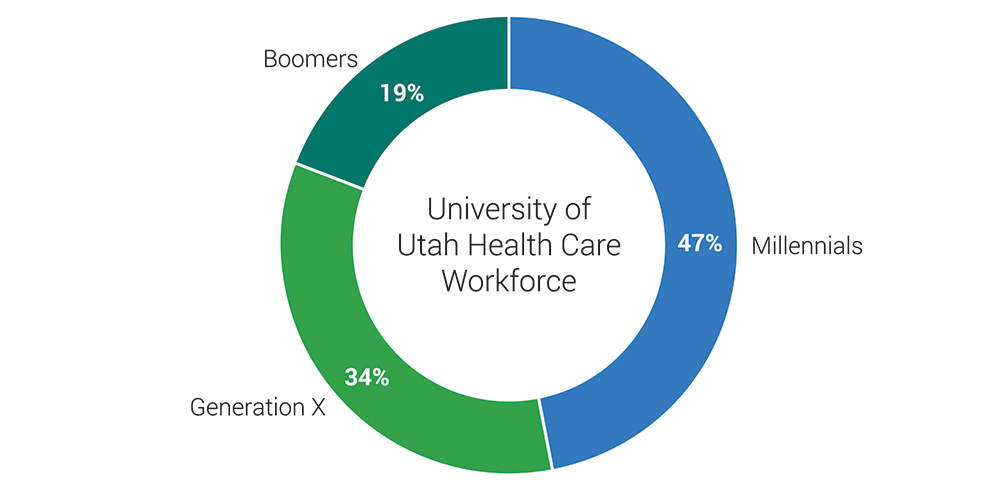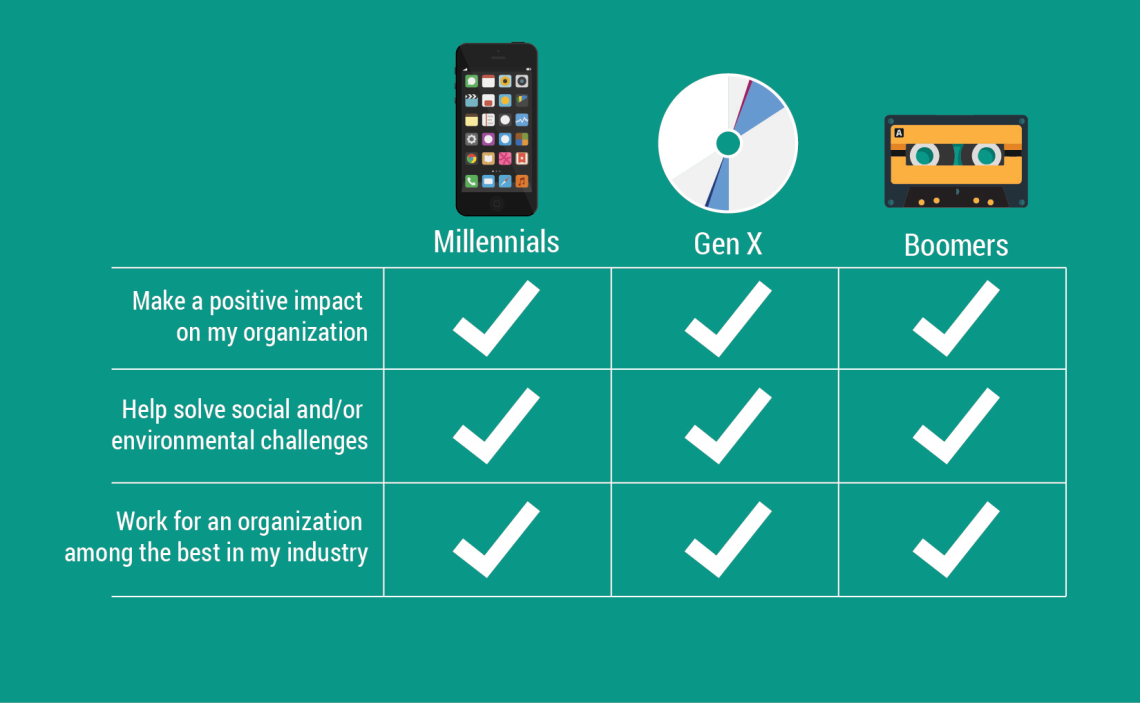Why Millennials Are (not really) Unique
Lately, people come to me perplexed with their younger employees, their millennial employees. I often hear “how do I manage and engage a multi-generational workforce, especially the millennial generation?”
I tell them that every generation needs the same thing: understanding the “why” and “how” of their personal contributions and impact on the organization. You may just need to change the delivery of the message to communicate clearly with the individual employee.
The key to unlocking each employee’s potential is shifting away from a “feedback” model to a “dialogue” approach.
We are in an exciting time! Our workforce is diverse in their strengths. The key to unlocking each employee’s potential is shifting away from a “feedback” model to a “dialogue” approach. It means moving from “I’m giving you feedback on your performance” to “let’s have a conversation about what is important.”
So how does it work? Here are just a few practices that you can integrate into your own management style.
Explain the “Why”
Don’t take it personally if employees ask “why.” Asking “why” is not a sign that they don’t support you or the team, but rather an opportunity to explain your team’s role and the impact you make within our organization. We value employees by helping them understand that the work that they do plays a pivotal point in our success.
Be Clear and Set Expectations
Big breakdowns occur when both the employee and the manager are frustrated because each are falling short of each other’s “expectations.” Clearly defined goals demonstrate what success will look like. As a leader, you will have a much easier time holding your team accountable and celebrating successes.
Create an open environment
All employees want a voice. Hearing employees’ opinions might not change your decisions, but listening to employees communicates respect. By creating an environment of mutual respect, you will set a stage for all conversations.
Be Open to New Ideas
You may be presented with new ideas from your staff that stray away from “the way we’ve always done it,” and that’s okay! By being open to ideas, you will grow as a leader.
Providing exceptional patient care, being the top in quality in the nation, and creating advancements in healthcare does not just happen. Teams working together while being led by engaged leaders is the foundation to continuing success.
Fun Fact: UUHC's Millennial Majority

Millennials now make up the largest percentage of University of Utah Health Care's workforce. Numbers are based on a sample of roughly 10,000 staff employed by University of Utah Health Care Hospitals and Clinics (2016).
Header image data from "What Do Millennials Really Want at Work?" HBR April 7, 2016 (permission 291674)
Sarah Sherer
We all make lots of mistakes early on in our careers. Hospitalist and mentorship expert Valerie Vaughn sets us up for success by sharing her expertise on how to take control of your long-term career path.
Practicing are recorded conversations with a colleague that are shared with the organization. They are conversations between real team members about why the work matters.
To disagree means failing to agree. Synonyms include to contradict, challenge or debate. Synonyms do not also have to include to argue, quarrel, dispute, bicker or clash. Pediatric intensivist Jared Henricksen shares the best path forward when words become clouded with emotion.
